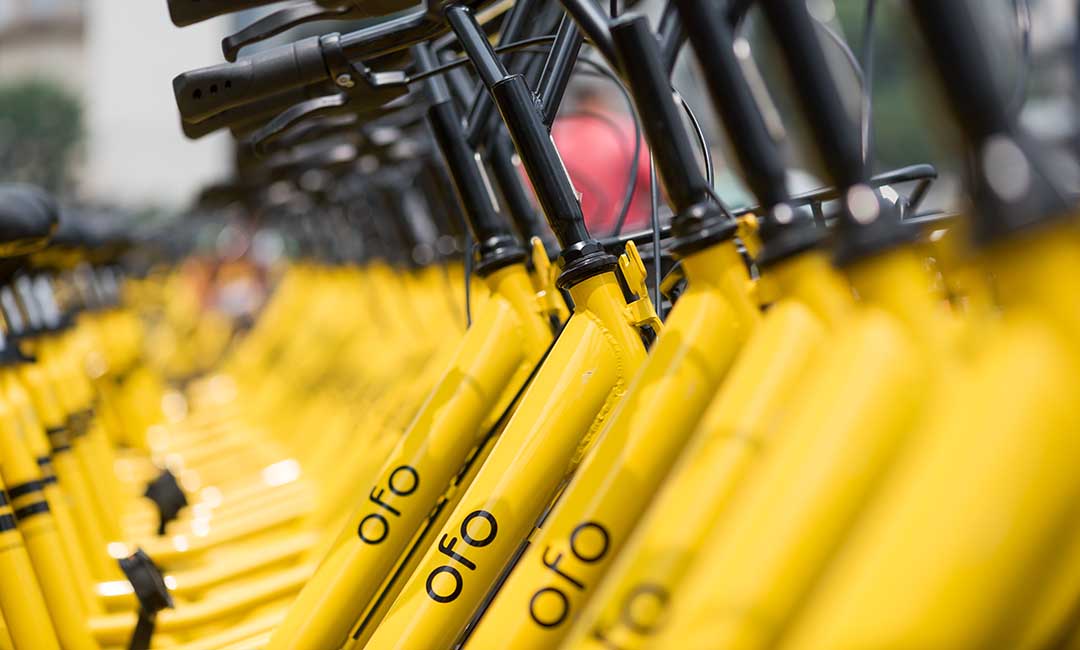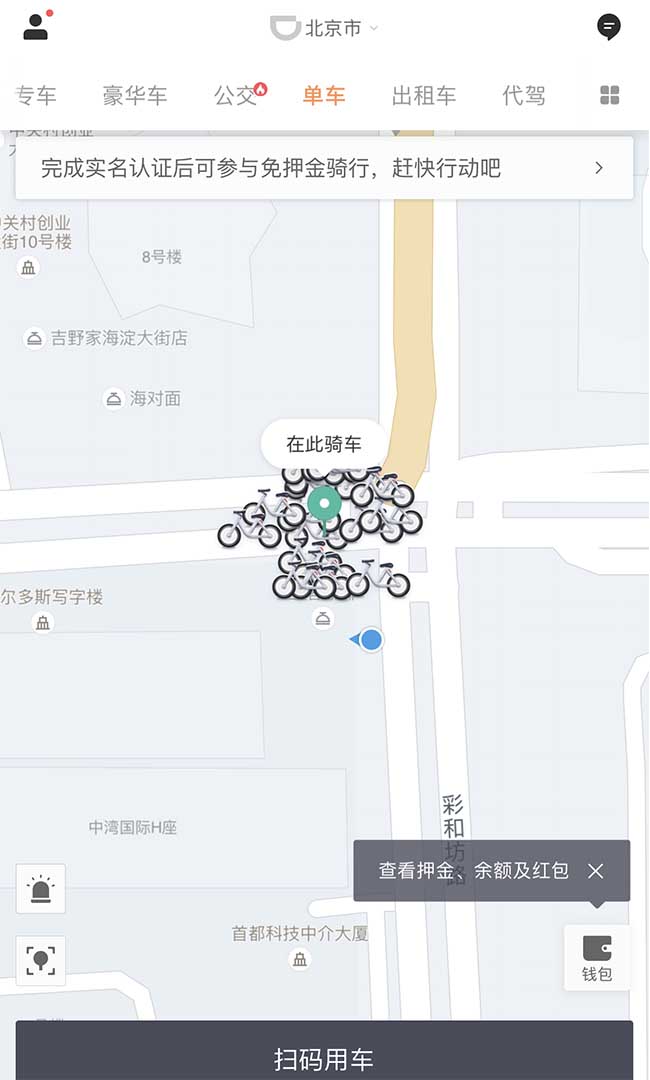The recent market rumor of Ofo seeking fresh capital from an Alibaba-led group of investors has just come to an unexpected twist.
An industry insider, citing multiple sources close to the matter, said that Ofo has yet to complete its last round of USD 1 billion financing announced earlier this year because one of its very own investors, Didi Chuxing, declined to sign the investment agreement.
An anonymous Ofo employee told us that “Ofo is raising from Alibaba, part of the financing will be used to dilute some of Didi’s stake in us.” Another people close to the deal also said that “(Didi) refused signing up to curb Alibaba investments in a way to impede Ofo’s future growth.”
Meteoric Honeymoon

Didi first invested tens of millions dollars in Ofo in September 2016 and participated in the Beijing company’s multiple later rounds. As of now, Didi owns around 30% of Ofo as its largest shareholder.
The two enjoyed a short honeymoon culminated in Didi in last July dispatching three execs to assume executive president, marketing head and CFO at Ofo. Then things took a sudden turn for the worse. In four months, the trio reportedly was taking time off and the investor-investee discord for the first time was put in the limelight.
The farce came to a halt when Didi announced earlier this year to stand in via a two-pronged strategy by operating bankrupted Bluegogo and launching its self-owned bike sharing service on its app.
Last we check, you can use Didi app to access to both Bluegogo and Ofo bikes.
Didi’s Bicycle Obsession

In addition to operating Bluegogo, industry sources also have revealed that Didi has been moving exploring a self-owned dockless bike sharing service, codenamed crabapple internally.
Latest developments, according to people familiar with the matter, Didi has partnered with Chinese veteran bike manufacturer Fujitec. The latter would deliver 200,000 bikes in the first shipment.
Additionally, a bike parts maker also confirmed that it has fulfilled production of Didi bike parts that are slated to deliver in late January for a company named QingQi Didi. QingQi sounds like “light rides” in Mandarin.
From acquiring Bluegogo to launching self-owned bikes, why Didi is so obsessed with an already ferociously battled market?
Its interest in the bike-sharing industry doesn’t come from nowhere. Many established companies, including Alibaba, have picked up an increasing interest in bike-sharing startups. As for Didi, there are even more reasons to ramp up its presence in this field.
Firstly, bike-sharing services are ideal for getting users.
Although came to the market 6 years later than Didi’s ride-hailing service, Ofo and Mobike have hit 50 million rides in total on daily basis in 2017 according to Ofo’s early investor Zhu Xiaohu, surpassing Didi’s 20 million per day.
Now with a larger user pool, bike-sharing startups are well positioned to offer their own ride-hailing services, challenging Didi’s dominant place in China.
For example, Mobike rolled out its ride-hailing service last December, threatening to get a piece of the pie from Didi. Meituan Dianping also made the same move. To take on the competition, Didi has to seize control over potential challengers to put out a fire before it gets out of control.
Another reason why Didi weighs in, is that riding bikes and taking taxis could be two naturally connected legs of a getaround journey.
When travelers getting off a car, Didi could better satisfy their needs by providing access to bike-sharing services from its own platform. Users won’t need to switch between different apps.
Last but not least, Didi currently came in second, only next to Uber, on market researchers CB Insights’ global unicorn list, with a valuation of over USD 56 billion.
Its valuation is higher than Xiaomi’s $46b. Beijing-based Xiaomi has snapped Goldman Sachs among other underwriters to lead a flotation later this year that could value the company at a stunning USD 100 billion, according to people familiar with the matter. If the deal works the magic, Xiaomi IPO could make for the largest tech IPO in the year of 2018.
This probably explains well why Didi has its mind fixated on bike sharing, it’s safe to say that its bloated valuation owes partly to its 30% or so stake in Ofo. Losing control over its Ofo stake combined with failing to successfully and rapidly launch a replacement to Ofo could deal a heavy blow to its valuation and hurt its worldwide unicorn ranking.
And since Ofo has remained steadfast in walking away from Didi by way of taking money from Alibaba, this reduced Didi to a position that it, on one hand, has to speedily produce its own Ofo substitute and on the other hand, holds on to its stake in Ofo, by refusing to let Alibaba in.
The Three Kingdoms of Bike Sharing

After initial runaway success, Chinese dockless bike-sharing market, in general, has been hit by both a warier capital world and a tightening governance.
The past year has seen the first sign of bloody consolidation, with several smaller players cracked up and went bust, falling down one after another.
The players who lasted to this last minute, entered into this new period where Alibaba backed Ofo/Hellobike/Youon Bike, Tencent affiliated Mobike, and Didi controlled Bluegogo shaped three kingdoms of bike sharing.
Mobike, Ofo, and Bluegogo were conventionally the three largest.
It’s interesting to see how history repeats itself. Previously in the historical battle of Didi (backed by Tencent) vs. Kuaidi (Alibaba) vs. Uber (Baidu), the trio fought a long and arduous fight and eventually merged into one giant.
The formation of the new bike sharing three kingdoms appears to portend a similar upshot where one winner will devour the others to give birth to a behemoth, ultimately.
